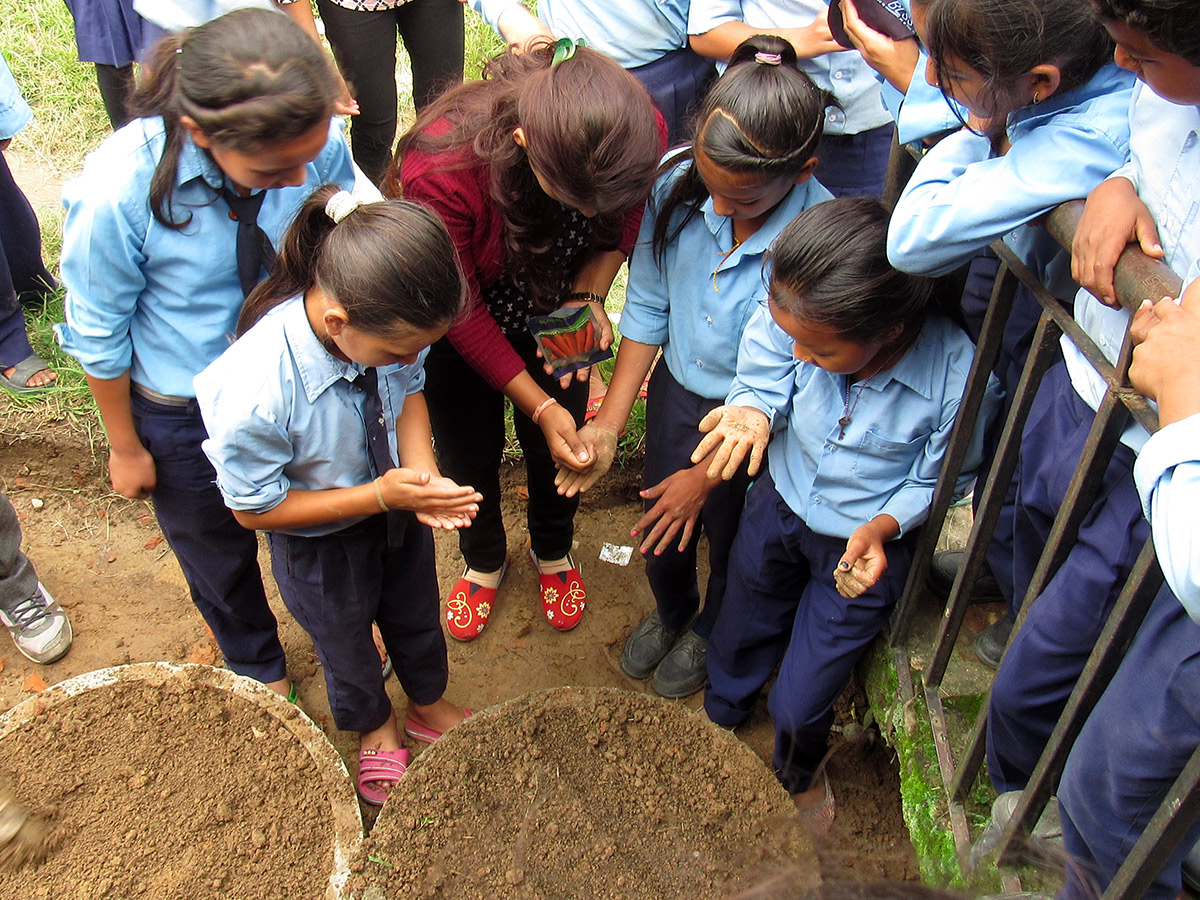16 Feb Farming Nepal update
Since January 2015, we have been carrying out an important project in Nepal, a country that has been pressured for over twenty years by (Indian and Western) multinationals into using hybrid seeds and an intesive use of chemicals (fertilizers, parasiticides).
The goal of ASIA’s action is to promote a return to traditional agricultural practices and knowledge, especially for the poorest urban and non-urban populations, through various actions; in particular in the areas of Dhulikel and Banepa more than 450 people have been trained on sustainable agricultural practices according to the principles of permaculture and some of these, 428 have received local seeds, over 390 people have been trained on burocratic procedures, codes of conduct and rules of behaviour for organic farming and for maintaining common standards.
In this perspective ASIA has also worked on the acceptance and implementation by the local authorities in charge, of a sustainable model of food production: 15 experts of the responsible district office have been trained and informed of the techniques for organic farming/permaculture and the consequences of mass usage of chemical pesticides and fertilizers, 15 experts from the district office responsible for Nepali agricultural policies (DADO).
Moreover, we have distributed more than 240 kits for farming on terracing and marginal urban land and 150 kits for farming in pots and roof gardening and we have set in motion a process of creating 18 farming cooperatives formed by “small” urban farmers; two plant nurseries have been created, managed by the farming cooperatives that produce organic local seeds and plants ready for planting in pots or earth and some cooperative have been given vehicles to sell their produce at the markets of the two towns.
In order to spread the culture of a “different”, more sustainable, agriculture, one and a half minute long promotional radio messages have also been made and are broadcast eight times a day for six months on a local radio. In a Nepali newspaper, with a run of 5000 copies, an article is being published about this topic once a month for six months and in 5 schools of Banepa a Dhulikhel educational vegetable gardens have been created.
The Project in Nepal is not completed yet!
We still have to help families build the plant nurseries where the local produce, seeds and vegetables will be kept for their food requirements, but also to generate income through sales. You can help too>>








